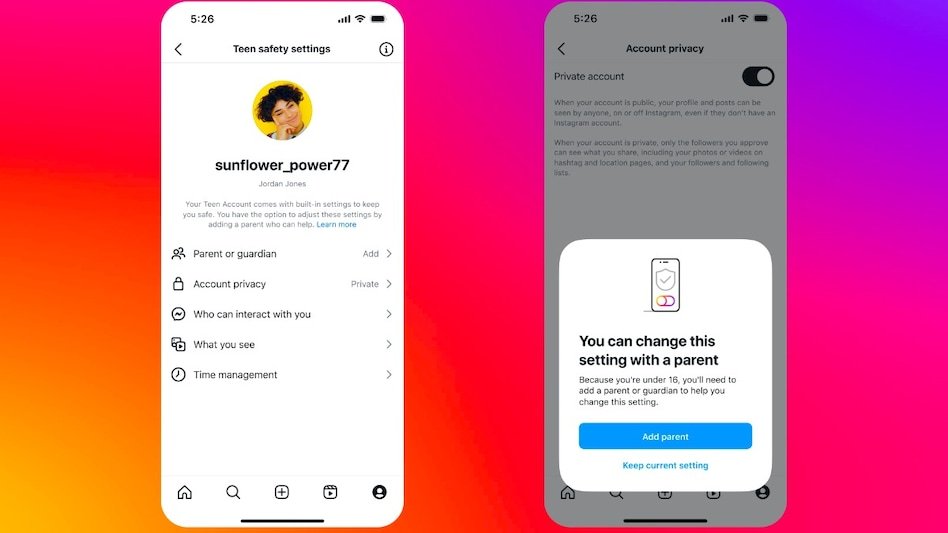In a significant effort to counter online child exploitation, Meta has announced taking down 6,35,000 Instagram accounts worldwide between May 2023 and June 2024 for child sexualisation policy violations. The technology giant also brought forward stronger safety features to safeguard adolescents on its platforms, including Instagram and Facebook.

The action is one of several recent steps taken by Meta to tackle growing issues of child safety on social media, particularly amid growing regulatory and parental pressure.
Targeted Action Against Harmful Content
Meta stated that these deleted accounts were involved in content or behavior that “sexualises children”—including suggestive imagery, inappropriate comments, or exploitative interactions. The company emphasized that children’s safety is non-negotiable, and teams across policy, product, and enforcement are working around the clock to detect and remove such violations using AI and human moderation.
Under the firm, active detection tools now flag and limit accounts that are being used for suspicious or predatory activity, with more extensive application of machine learning to detect malicious patterns.
New Teen Safety Features
In addition to enforcement, Meta has also introduced new teen safety features:
Tighter Message Filters: Teens will have stricter controls automatically on who can message them or add them to group chats.
Content Control Expansion: Suggested potentially inappropriate content is being restricted even more, particularly on Instagram Reels and Explore.
Nudging Tools: If teens engage with suspicious content or accounts, Instagram will prompt warnings to practice safer behavior.
Hidden Words Update: An expanded dictionary of hurtful and abusive words has been incorporated into Instagram’s filter to protect teens from unwanted messages.
Global & India Context
India, which is among Meta’s biggest markets with tens of millions of teen users, is likely to gain the most from these changes. Safety on the internet, particularly for youth, has been a sensitive topic in India with an increase in cyberbullying, stalking, and grooming reports.
Meta further stated that it is collaborating with law enforcement authorities, child protection non-profits, and governments across the world to make its platforms safer places for young people.
As internet sites become ever more powerful in young people’s lives, Meta’s latest move is interpreted as both a reaction to public pressure and an anticipatory measure against tightening controls. Parents and teachers have cautiously welcomed the move, calling for close monitoring and openness to continue being mainstays.

